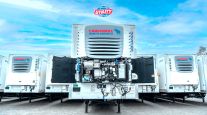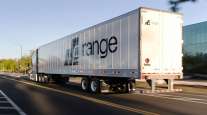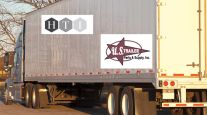House Bill to Ban Double-Decker Trailers for Horse Transport Concerns Truckers
This story appears in the Aug. 16 print edition of Transport Topics.
Federal legislation that would ban the use of double-decker trailers to transport horses has drawn the ire of trucking and other interest groups because they say there has not been adequate debate.
The legislation, which cleared the House Transportation Committee in late July without a hearing, would prohibit the interstate transportation of horses in motor vehicles containing two or more levels stacked on top of one another.
The Horse Transportation Safety Act was introduced by Rep. Mark Kirk (R-Ill.) and Rep. Steve Cohen (D-Tenn.) last year. A spokeswoman for Kirk, currently the Republican candidate for the Senate in Illinois, said he offered the legislation with support from animal protection advocates after a 2007 accident north of Chicago killed 17 of 59 horses en route to a slaughterhouse.
Opponents say the bill, which cleared the House Transportation Committee late last month, is being rushed by supporters without proper debate. The legislation now moves to the full House for a vote.
The Professional Rodeo Cowboys Association, the group that produces rodeos throughout the United States and whose members include nearly 80 contractors who transport livestock, also said the legislation could cost the contractors more than $4 million in new operating and equipment costs.
In a letter to a congressional staffer, Rick Yost, a vice president at V-Y Truck Line, Sterling, Colo., and chairman of American Trucking Associations’ Agricultural and Food Transporters Conference, said he had “concerns” with the bill.
“While this may be a well-intentioned effort, this is another case of unnecessary government intrusion — especially as the bill is currently drafted,” Yost wrote.
The bill would not affect the transport of race horses, said Eric Wing, a spokesman for the National Thoroughbred Racing Association.
“Between the horse’s value and the potential for injury, single-deckers are the only kind used for thoroughbred horses,” Wing said. “Thoroughbred horses fly a fair amount, too.”
Supporters of the bill said transporting horses in double-deck trailers is inhumane be-cause the horses are taller than the trailer ceilings, and because horses should not be transported in herds.
“Double-stacked trailers are designed for the transportation of livestock such as cattle and hogs, and not larger and taller animals like horses,” Transportation Committee Chairman Rep. James Oberstar (D-Minn.) said at a markup of the bill last month.
“In 2006, the Department of Agriculture determined that using double-stacked trailers is an inhumane way to transport horses and prohibited their use for carrying horses directly to a slaughter facility,” Oberstar said. “If these trailers are deemed inhumane for horses bound for slaughter, it is difficult for me to understand why we would allow this method of transportation in any other circumstance.”
But contractors said they have safely and humanely transported horses for decades. The contractors are the targets of a political battle spearheaded by “bleeding hearts” and “people who are not educated” on the issue, Jim Korkow, a Pierre, S.D., rancher and livestock transporter, told Transport Topics.
Korkow, whose family has been in the business more than 60 years, said his horses are valuable assets, worth up to $50,000 each.
They are well-treated “professional athletes that perform at rodeos,” he said.
Korkow, whose trucks log about 45,000 miles a year transporting horses to rodeos, said he uses roomy, custom-made double-deck trailers that cost up to $80,000 each.
The American Veterinary Medical Association recommends that horses be hauled only in trailers with a ceiling clearance from 7 feet to 8 feet, said Christine Sequenzia, federal policy adviser for the Animal Welfare Institute.
“Responsible horse owners haul their horses in trailers that have partitions, and the animals are tied down,” Sequenzia said. “They’re not normally transported in bulk like livestock.”
Since 2006, the Department of Agriculture has not allowed horses to be directly transported in double-deck trailers to slaughterhouses outside the United States. There are no horse slaughterhouses remaining in the United States, but horses are still transported to Canada for slaughter.
However, a loophole in the regulations allows transporters to carry the horses most of the trip in double-decker trailers as long as they do not “arrive” at the slaughterhouse in the banned trailers, Sequenzia said.
“You could have a horse originate in Texas and travel all the way to Canada in a double-decker and it be loaded into a single deck and then hauled the rest of the way,” Sequenzia said. “So it doesn’t stop the extreme abuse of a horse having to endure 36 hours on a double-decker.”
Cindy Schonholtz, director of livestock welfare for the rodeo cowboys association, said the majority of the livestock contractors use modified double-deck trailers to transport horses to rodeos, some that have 9-foot clearance areas.
“The way this bill is written, even if you have an area with a 9-foot clearance, you wouldn’t be able to haul horses,” Schonholtz said. If the bill passes, it would require contractors to spend $2.3 million for new trailers and add another $1.9 million in operating costs, she said.




